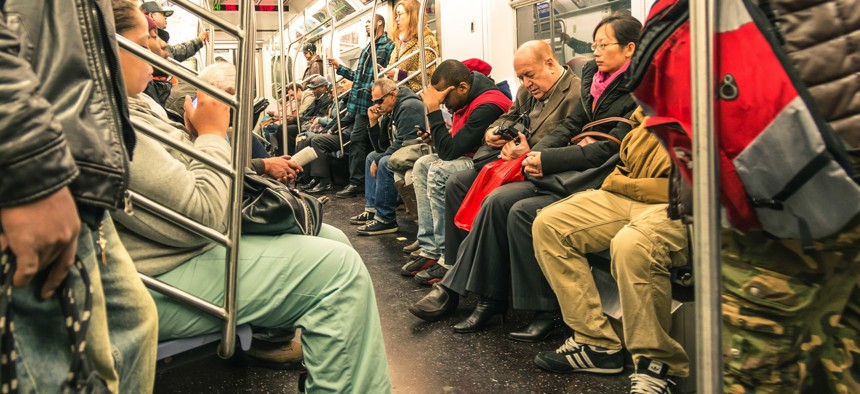What Can Cities Do to Protect Soft Targets Against Terrorist Attacks?

A New York City subway train. View Apart / Shutterstock.com
The deadly events in Paris show just how vulnerable places like restaurants and some entertainment venues are.
Following the Oklahoma City bombing in 1995 and the Sept. 11, 2001, terrorist attacks, security was beefed up at many government facilities across the United States through the use of screening checkpoints, bollards, barriers and other hardened exterior defenses.
While it can be costly to increase the security at so-called hard targets, like federal buildings and airport facilities, protecting those types of sites from terrorist attacks is far easier than protecting soft targets—places like restaurants, shopping malls and public transit—that are designed to have easy access for the general public.
And as Friday’s terrorist attacks in Paris demonstrate, those soft targets present difficult security challenges for law enforcement and public safety officials.
Reacting to the deadly attacks in the French capital, many American local law enforcement agencies said that they would be increasing police presence, though there were no known credible specific threats against targets in the United States. (On Monday, a video from the Islamic State warned of a Paris-like attack on Washington, D.C.)
In New York City, Police Commissioner Bill Bratton said Monday on MSNBC’s “Morning Joe” that his city is an obvious target for a future attack by the Islamic State or its allies and that since Friday’s deadly events in Paris, plans to add 500 New York Police Department officers to the city’s counterterrorism force.
Police officials in other cities said they would be vigilant and ready to respond to any threat.
"We will maintain this additional presence until such time as more information becomes available on this attack, and we feel circumstances dictate that they are no longer needed," Cathy Lanier, chief of the Metropolitan Police Department in Washington, D.C., said following Friday’s attacks in Paris.
While visible police presence is poised to be increased, is there anything state and local governments can do beyond that to protect soft targets like restaurants, public transit and entertainment venues?
In New York City, Brooklyn Borough President Eric Adams has proposed having places like music venues, shopping malls and other sites go through regular drills to prepare for such situations and plans to have an emergency meeting with venue operators.
“After Paris, we have to refine what a fire drill is,” Adams told the New York Daily News. “In today’s world, a fire drill is not just about flames. It’s about people firing guns.”
(Photo by View Apart / Shutterstock.com)
Michael Grass is Executive Editor for Government Executive’s Route Fifty.
NEXT STORY: Raleigh Spotlights Its Firefighting Advances






